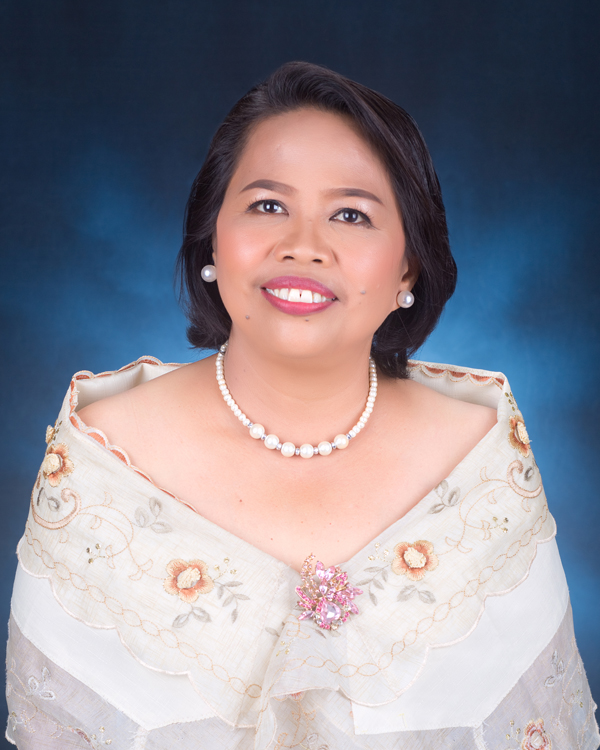The External Affairs and Linkages Office (EALO) is mandated to unceasingly build a strong connection and collaboration with other educational institutions, relevant government and non-government agencies, industries and other sectors of the society that can assist in accomplishing its task in accordance with the national agenda. It has to explore and identify possibilities of linkage development, cooperation and partnership with various sectors, local or international on area that will redound to the realization of its mission and vision.
EALO is an administrative office that provides mechanisms to expose the faculty, staff and students in various engagements especially to the global community to strengthen the University’s VMGO.
EALO is engage in the initiation, planning, implementation and monitoring of linkage activities. It promotes institutional, industrial and organizational collaboration and consortium with local and foreign universities, industries and organizations in the form of student internship and student and faculty exchange, joint research, exchange publication, sponsorship of conference, consortia for program implementation, faculty industry immersion, student industrial training and other academic activities.
With this, EALO also internationalize the ideas and perspectives of the academic community, open better understanding in cultural diversity, and nurture the students and faculty to compete in the increasing highly globalized world.
EALO serves as the primary channel of the University that accepts and scouts highly exceptional partners/collaborators to achieve the vision-mission statement.In support in the University’s aspiration to achieve regulatory, adaptive and matched excellence; the EALO has been constantly working to achieve the following objectives:
- Pursue academic excellence by sharing and learning from the expertise, experiences, and the best practices of people and professionals from the different parts of the globe;
- Expose both student and faculty members to the understanding of other cultures, communities, and languages to foster harmonious relationships in the pursuit of mutual and consequently global advancement through faculty and student exchange program;
- Expose students to the dimension of multicultural integration and adaptation while obtaining skills necessary for work-life through Student Internship Program in the Philippines(SIPP) Student Internship Abroad Program (SIAP);
- Be a part of creating inventive resolutions to challenges, build worldwide networks, and be emissaries for CapSU and the Philippines; and
- Commit to building relationships that create resilient academic communities, independent societies, and a world where countries are prepared to work together to solve the issues that concern the majority.

Dr. Salvacion J. Legaspi is a distinguished Professor VI and currently serves as the Vice President for External Affairs and Linkages at Capiz State University (CAPSU). With a career spanning over three decades, she has made significant contributions to both academic and administrative fields, earning widespread recognition for her achievements.
Dr. Legaspi holds a robust academic background in horticulture and plant physiology. She earned her doctorate from the University of the Philippines Los Baños (UPLB) under the DOST-PCARRD scholarship. She also holds a Master’s degree in Agronomy from CAPSU and a Bachelor’s degree in Horticulture, majoring in Plant Breeding, from UPLB, where she benefited from the JOCV Scholarship program. Her professional credentials include licensure as an agriculturist and certifications in agricultural crop production, including the National TVET Trainer Certificate Level 1 in Agricultural Crops Production NC III from TESDA. She is also a licensed Professional Teacher and a Civil Service Professional Examination passer.
As the former Director of the Crop Science Research and Development Center (CSRDC) at CAPSU for seven years, Dr. Legaspi demonstrated her commitment to advancing agricultural research and development. Under her leadership, CSRDC became a hub for innovative agricultural solutions, earning multiple accolades for research excellence. Her previous roles as Dean of the College of Agriculture and Forestry and Chair of the BSA Ladderized Program reflect her deep commitment to enhancing agricultural education.
Furthermore, Dr. Legaspi has successfully led several significant projects that have advanced agricultural practices in the region. She is currently the Program Leader for the “Utilization of Coconut Germplasm Collection at the Coconut Breeding Trial Unit for the Advancement of Coconut Hybridization Program in Western Visayas,” supported by DOST-PCAARRD. Her leadership extends to projects such as the Plant Nursery Facility with an Automated Micro-Sprinkler Irrigation System, and the Massive Seedling Propagation and Distribution Project, both supported by DA FO 6. She also spearheaded the Crop and Soil Science Laboratory, funded by DA ACEF, as well as the “From Substrate to Utilization: Ensuring Vermicompost Quality and Safety” project and the Organic Fertilizer and Soil Ameliorants Project, both funded by DA BAR.
Additionally, Dr. Legaspi has made substantial contributions to the scientific community through her research publications, primarily focusing on sustainable agriculture, including vermicomposting, organic farming practices, and biofertilizer development. Her work has not only enriched academic discourse but also garnered awards and recognitions, particularly for her pioneering research on coconut production and soil fertility management. Her innovative spirit is further demonstrated by multiple patent applications, notably in biofertilizer formulations and methods for producing seedlings and copra from a single germinated coconut nut. These inventions have played a pivotal role in advancing sustainable agricultural practices.
Dr. Legaspi’s career is a testament to her unwavering dedication to agricultural innovation, education, and community engagement, solidifying her status as a leading figure in agricultural science and an invaluable asset to CAPSU and the broader academic and agricultural communities.
